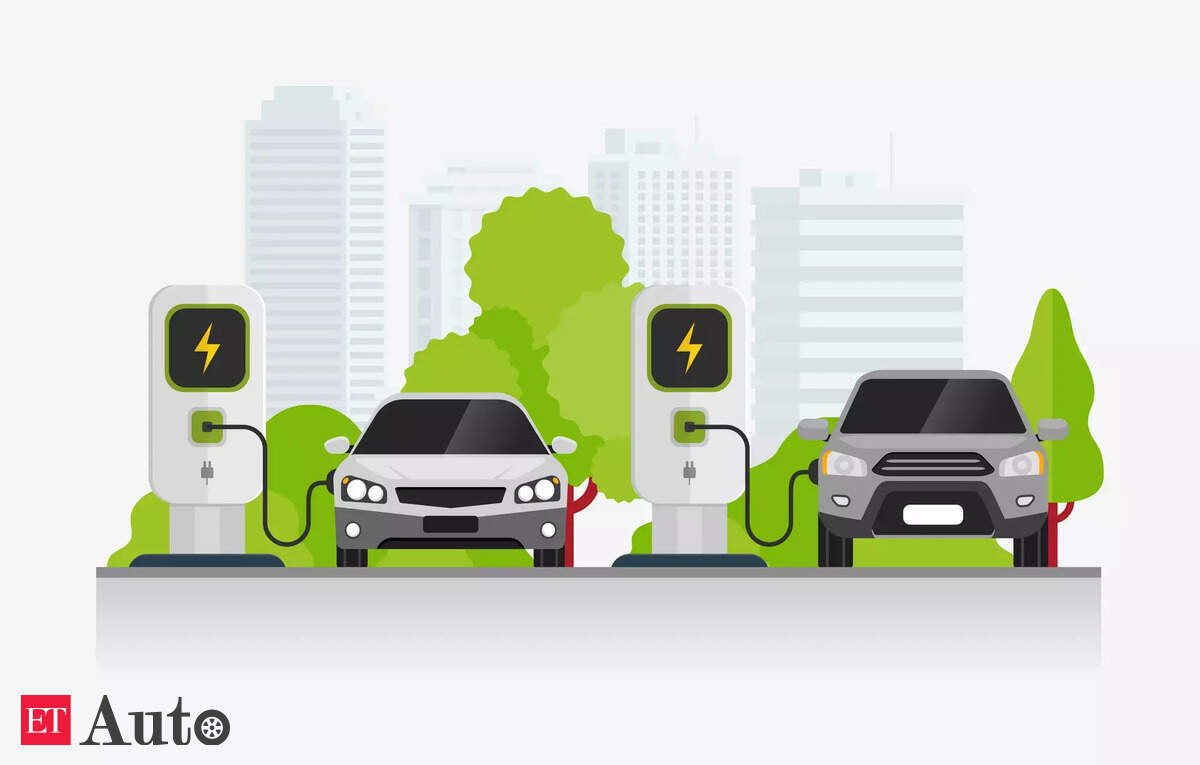Auto Dealers Intensify Opposition To Mandatory EV Quotas

Table of Contents
Economic Concerns Driving Dealer Opposition to EV Mandates
Mandatory EV quotas present a complex economic challenge for auto dealers. The transition to selling EVs requires substantial upfront investments and carries inherent risks. Dealers are raising serious concerns about the financial viability of these mandates, citing several key issues:
-
High Infrastructure Costs: Equipping dealerships to handle EVs requires significant investment in charging stations, specialized tools, and employee training. These costs can be substantial, especially for smaller dealerships with limited capital. The return on investment (ROI) on this infrastructure is uncertain, given the still-developing EV market.
-
Lower Profit Margins: Currently, the profit margins on EVs are generally lower than those on gasoline-powered vehicles. This is due to factors such as higher manufacturing costs and increased competition. Mandatory quotas force dealers to stock and sell more EVs, potentially squeezing their overall profitability.
-
Inventory Management Challenges: Predicting consumer demand for EVs remains difficult. Dealers risk being saddled with unsold inventory, tying up capital and increasing storage costs. This is particularly risky given the rapid technological advancements in the EV market, leading to potential obsolescence.
-
Uncertainty Surrounding Consumer Demand: While EV adoption is growing, consumer demand varies significantly across different market segments and geographical locations. Mandatory quotas don't account for these variations, leaving dealers vulnerable in areas with lower EV demand.
-
Insufficient Government Incentives: Many dealers argue that current government incentives are inadequate to offset the substantial costs associated with transitioning to EV sales and servicing. More robust support is needed to make the transition economically feasible for all dealerships.
Practical Challenges of EV Quotas for Dealerships
Beyond the economic concerns, auto dealers face numerous practical challenges in adapting to mandatory EV quotas. These include:
-
Sales Training and Staff Education: Selling and servicing EVs requires specialized knowledge. Dealerships need to invest in extensive training programs for their sales and service staff to effectively handle EV-specific questions and concerns.
-
Consumer Education: Many consumers remain unfamiliar with EV technology and its benefits. Dealers play a critical role in educating consumers and overcoming anxieties surrounding range anxiety, charging times, and battery lifespan. This requires substantial investment in marketing and educational materials.
-
Lack of Charging Infrastructure: The widespread availability of public charging infrastructure is crucial for EV adoption. The lack of sufficient charging stations in many areas creates a significant barrier to consumer confidence and hinders EV sales.
-
Parts Supply and Maintenance: Obtaining parts and providing timely maintenance for EVs can be more challenging than for gasoline vehicles. The specialized nature of EV components can lead to longer repair times and increased costs.
-
Long-Term Market Viability: The long-term viability of the EV market and consumer preferences remains uncertain. Dealers are concerned about investing heavily in EV infrastructure only to face shifts in market trends or technological disruptions.
The Lobbying Effort Against Mandatory EV Quotas
Facing these considerable economic and practical challenges, auto dealer associations and industry groups are actively lobbying against or seeking modifications to mandatory EV quotas. This lobbying effort involves:
-
Lawsuits: Several industry groups have filed lawsuits challenging the legality or feasibility of mandatory EV quotas, arguing that they constitute government overreach.
-
Public Campaigns: Auto dealer associations are engaging in public awareness campaigns to highlight the concerns of dealerships and to educate the public about the potential negative consequences of these mandates.
-
Meetings with Lawmakers: Industry representatives are actively meeting with lawmakers to express their concerns and advocate for alternative approaches to achieving EV adoption goals.
-
Political Influence: The automotive industry wields significant political influence, and these lobbying efforts are designed to impact policy decisions at both the state and federal levels.
Alternative Approaches to Increasing EV Adoption
Instead of imposing mandatory quotas, several alternative strategies could be employed to encourage EV adoption without placing undue burdens on auto dealers:
-
Enhanced Consumer Incentives: More generous tax credits, rebates, and other financial incentives can significantly stimulate consumer demand for EVs.
-
Investing in Public Charging Infrastructure: Significant investment in a robust public charging network is essential to address consumer range anxiety and boost EV adoption.
-
Voluntary Sales Targets: Setting voluntary targets for EV sales, instead of mandatory quotas, would provide automakers and dealers with greater flexibility and avoid the potential for economic disruption.
-
Public Awareness Campaigns: Comprehensive public awareness campaigns highlighting the benefits of EVs can effectively increase consumer interest and encourage adoption organically.
Conclusion
The debate surrounding mandatory EV quotas is far from settled. Auto dealers are raising valid concerns about the significant economic and practical challenges these mandates present. While transitioning to electric vehicles is crucial for environmental sustainability, a more balanced approach is needed. Instead of imposing potentially disruptive quotas, policymakers should prioritize consumer incentives, infrastructure development, and robust public education. The future of the automotive landscape hinges on finding a path to increased EV adoption that considers the economic realities and practical limitations faced by auto dealers. We urge readers to stay informed and engage in the discussion surrounding mandatory EV quotas and their impact on the automotive industry. Understanding the diverse perspectives is critical for shaping effective policies that promote both environmental sustainability and economic viability.

Featured Posts
-
 L Echo Du Monde Legislatives Allemandes J 6 Tout Ce Qu Il Faut Savoir
Apr 23, 2025
L Echo Du Monde Legislatives Allemandes J 6 Tout Ce Qu Il Faut Savoir
Apr 23, 2025 -
 Acara Tv Terbaik Ramadan 2025 Rekomendasi Untuk Menyambut Bulan Suci
Apr 23, 2025
Acara Tv Terbaik Ramadan 2025 Rekomendasi Untuk Menyambut Bulan Suci
Apr 23, 2025 -
 Gdje Kupovati Za Uskrs Radno Vrijeme Trgovina Za Blagdane
Apr 23, 2025
Gdje Kupovati Za Uskrs Radno Vrijeme Trgovina Za Blagdane
Apr 23, 2025 -
 Brewers Must Overcome These 2 Early Season Weaknesses For A Postseason Run
Apr 23, 2025
Brewers Must Overcome These 2 Early Season Weaknesses For A Postseason Run
Apr 23, 2025 -
 Brewers 9 Cubs 7 A Windy Offensive Outburst
Apr 23, 2025
Brewers 9 Cubs 7 A Windy Offensive Outburst
Apr 23, 2025
